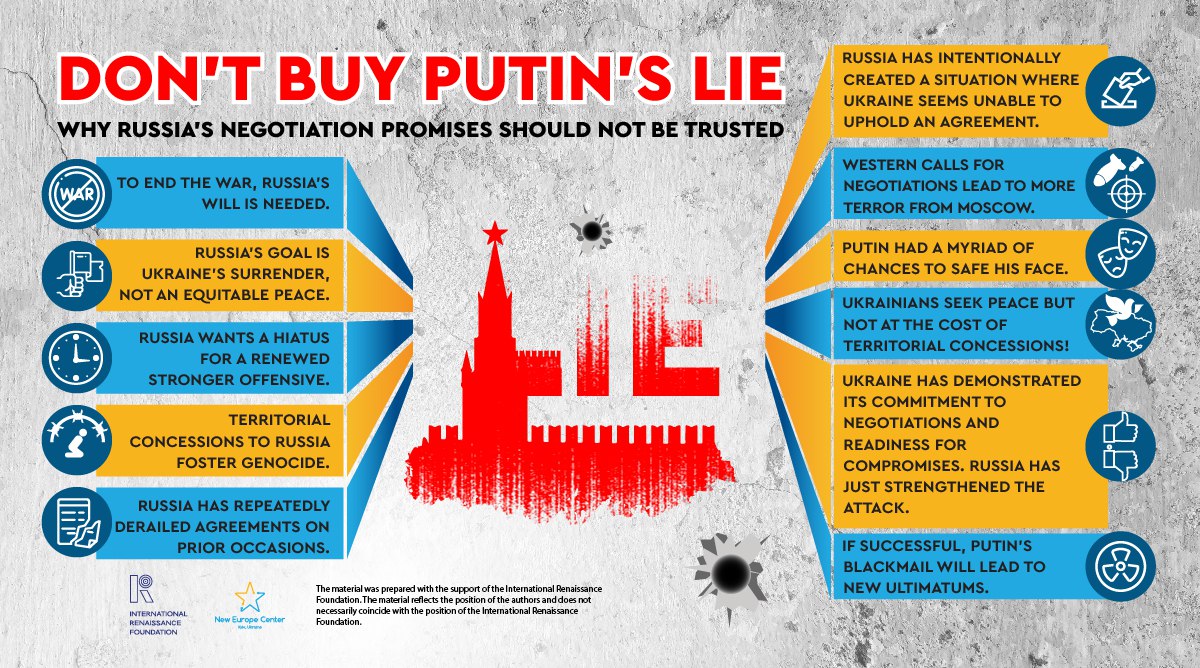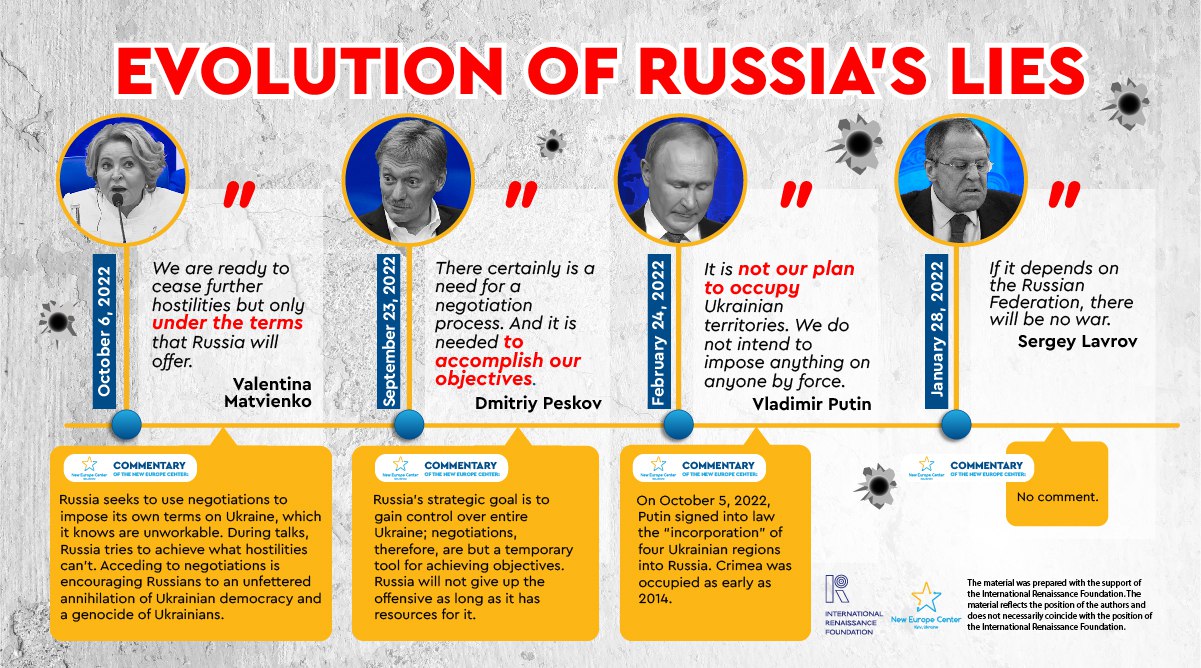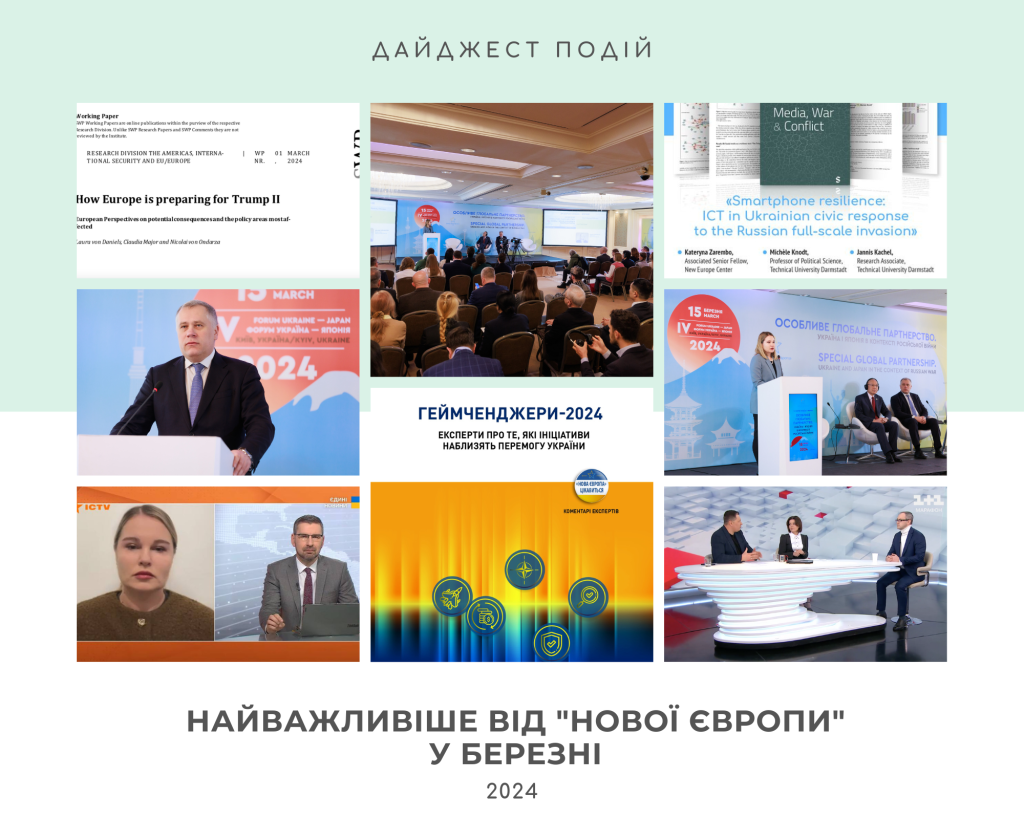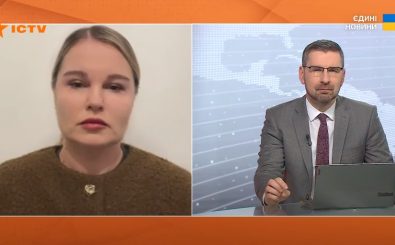Article by: Sergiy Solodkyy
Edited by: Kate Ryabchiy
What Russian President Vladimir Putin has not achieved through military action, he hopes to accomplish through negotiations. When Moscow talks about negotiations, it does not mean a process that should result in stable and equitable peace. Even though democratic governments worldwide support Ukraine’s position, which rejects the Kremlin’s ultimatums, politicians and private individuals continue to press Kyiv to begin negotiations with the aggressor. Accepting Russia’s blackmail will signal to the Kremlin that it has won and can continue to impose new conditions as much as they want, threatening another offensive, the use of nuclear weapons, and so on. Hopes that these negotiations will end the suffering and deaths of Ukrainians are more than naive. Therefore, the New Europe Center puts forth several arguments demonstrating that talks with Putin at this point are tantamount to declaring defeat.
From economic pressure to nuclear threats
There were also enough Ukrainian politicians who genuinely believed that appeasing the Kremlin would ensure stability and mutually beneficial cooperation between Kyiv and Moscow. For example, in 2010, the authoritarian Viktor Yanukovych, known for his loyalty to Russia, became Ukraine’s president. During his first negotiations with the Russian leadership, he attempted to obtain a gas discount in exchange for promising not to integrate the state into NATO. The Russians, of course, did not agree to this.
Russian diplomats gloated about their victory in private conversations: “Yanukovych will give up NATO himself because that’s what his voters want. Why should we pay for it? We will wait for new business proposals that will be of interest to us.”
Within a few months, the world learned about these “business proposals” (Russia managed to extend the period of basing the Black Sea Fleet in Crimea). Certainly, Yanukovych personified a non-alignment policy by veering off the NATO course. This decision ultimately did not protect Ukraine from Russia’s military aggression. As Russia began with the occupation of Crimea in February 2014.
There are numerous instances in the history of Ukrainian-Russian relations with Moscow compelling Kyiv to make unfavorable concessions to maintain stable relations or, more bluntly, appease the insatiable Russian elite. Constant concessions and adherence to compromises did not protect Ukraine but resulted in an insidious, vicious attack on millions of peaceful Ukrainians.
Russia perceived Ukraine as a sphere of its influence. It could not allow Ukrainians to determine their fate. The issue was not whether Ukraine wanted to join the EU and NATO; instead, Vladimir Putin was infuriated by the Ukrainians’ innate democratic nature and contempt for post-Soviet political elites. He saw the Orange Revolution of 2004 and then the Revolution of Dignity of 2013-14 as threats to order in Russia and thus to his political survival.
Initially, Putin attempted to economically bind Ukraine to Russia (the same scenario he implemented in the case of Kazakhstan). At times, he used internal political crises, such as the isolation of the Ukrainian government under Leonid Kuchma, to increase Russian influence (within the context of Belarus, he works out this model entirely). However, Ukraine proved resilient enough to refuse Putin’s numerous imperial plans.
Russia’s attempts to subdue Ukraine entered a new phase with the beginning of aggressive actions in 2014 (per Putin’s vision, the occupation of Crimea and parts of the Donbas territories compelled weakened Ukraine to implement any of Russia’s conditions). When Moscow’s eight years of covert interventions failed to coerce obstinate Ukraine, it launched a large-scale invasion, complete with “little green men” and covert maneuvers. But this plan failed, too, as the international community met Putin with a backlash that neither Russia nor the West could have predicted. The military adventure, which was supposed to end in days with a triumph, resulted in the image’s erasure of the invincible Russian army and Russia’s isolation from the rest of the world. Regardless of his approval ratings, Putin’s political future looks more precarious than ever. In times of deep crisis, public opinion can quickly shift from adoration to outright hostility. Most importantly, Putin does not have the arrogance to dismiss the dangers he has created for himself.
Putin’s weakening does not imply that he is ready for compromises or the end of the war. He will continue to shed innocent blood until the Russian army suffers a strategic defeat on the battlefield and Russian society suffers the painful consequences of its militaristic intoxication.
A brief excursion into the history of Ukraine-Russia relations reveals the evolution of the tools Putin used to achieve the primary goal of regaining influence over Ukrainians. Initially, these were tools of economic and gas blackmail. He later shifted to nuclear attack threats. Consequently, what have the Ukrainians learned from Putin’s special operations in other nations? The conflict will never end if one makes concessions to Russia because compromises only lead to new ultimatums.
Why Russia’s peace talks promise not to be trusted
The New Europe Center highlights several arguments demonstrating the danger of Moscow’s new strategy. This strategy involves convincing the world that Russia seeks peace and negotiations. At the same time, Ukraine appears to thwart this sincere aspiration. One hopes that these arguments will be helpful to those who genuinely believe in any agreement with Putin. The following are:

- Russia’s will is necessary to end the war
Ukraine has fallen victim to Russia’s unprovoked aggression for the second time in eight years, including the full-scale invasion. The war will end as soon as Russia ceases fire and withdraws from the occupied territories.
Moscow should not be able to manipulate observers. It is evident that Ukraine did not initiate the war. It is waging a liberation struggle against the aggressor. Therefore, Russia does not need to declare its readiness to negotiate. It simply needs to withdraw its troops from Ukrainian territory.
- Russia seeks Ukraine’s surrender, not an equitable peace
Since 2014, Russia’s war goals have remained unchanged. In particular, the installation of a puppet regime in Ukraine. Given that neither the occupation of Crimea nor a part of Donbas will suffice for Moscow, Russia’s full-scale war will break out in 2022. Eight years should have been sufficient to understand that Russia says one thing but does another.
The occupation of Crimea and parts of Donbas was merely the beginning of Putin’s ominous plan. Russia deliberately created a situation in which Ukraine appears to be intractable. Kyiv warned that the occupation of Ukrainian territory would close the door to negotiation opportunities. Despite this, Putin continued to hold “pseudo-referendums” in the occupied territories. To enter negotiations under such terms is tantamount to capitulation and encourages Russia to continue genocide with the tacit approval of the international community.
- Russia seeks a hiatus to resume a more potent offensive
Negotiation allurement is a tactical move to reduce other countries’ alertness and recover from battlefield defeats. Mobilization and the transition of defense enterprises to 12-hour workdays indicate that any ceasefire will only be temporary if it happens. Russia would eventually have to relaunch its offensive because Moscow has failed to achieve its primary war objectives.
In 2014, Russia quietly seized Crimea because Ukraine was unable to resist. Ukrainians were surprised by the Russians’ treachery. Ukraine believed it was essential to avoid bloodshed and heeded the advice of Western politicians who urged it not to succumb to provocations. Later, it became evident that Russia would not stop at Crimea and expand provocations in Ukraine’s east and south. At this point, the Russian occupation was limited to specific areas of Donbas only because the Ukrainian army began to resist.
Anyone who has dealt with Russia in the past has recognized that it will carry on with its plan of overthrowing the Ukrainian government and occupying most of its territory. For a long time, Moscow attempted to do so by using the “Minsk process,” discrediting the Ukrainian authorities, and repeatedly engaging in hybrid interventions in Ukrainian affairs. In February 2022, Russia launched an open offensive after attempting hybrid tactics but failing to accomplish its objective. Russia’s peace talks ruse is one that Ukrainians cannot afford to fall into again.

- Territorial concessions to Russia foster genocide
Numerous war crimes committed by Russian nationals in Ukraine have been documented to date. Russian war crimes have long been confirmed by the reports of a specially assembled UN Commission. As of 28 September, 36,751 war crimes and 16,484 crimes against national security have been documented in Ukraine as a part of Russia’s full-scale invasion.
Even in the absence of hostilities, peace at the cost of territorial concessions will imply tens of thousands of new casualties. Russian propaganda urges its troops to commit genocide against the Ukrainian people. Therefore, anyone who believes that the end of the war will bring an end to Ukrainian deaths is gravely mistaken. Ukraine will likely vanish from Western countries’ information space, but Russia’s atrocities will continue if it further occupies Ukrainian territory. If one believes in the possibility of the formula “Peace in exchange for land,” one must be prepared for the more practical Russian algorithm: “Genocide in exchange for land.” In addition, Ukrainians will be unable to defend themselves due to another “peace agreement.”
- Russia has repeatedly derailed prior agreements
In 2014, Ukraine already reached agreements with Putin, commonly known as the “Minsk Accords.” Therefore, Kyiv understands well the value of Russia’s peace commitments. Russia has repeatedly disrupted the Minsk Accords. For instance, on 2 November 2014, Moscow held illegal elections in the temporarily occupied territories of Donetsk and Luhansk Oblasts (although it had no right to do so0. Despite having reached a ceasefire agreement in February 2015, hostilities continued.
Even the commencement of large-scale military operations is the most damning evidence of Russia’s disregard for its obligations under peace agreements. The new deal with Russia will be the new “Minsk” in its most egregious form, which Russia will violate whenever it is convenient. The most infamous violation committed by Moscow is the cynical refusal to implement the Budapest Memorandum (the Budapest Memorandum on Security Assurances, of 5 December 1994, which stipulated that Russia was one of the parties guaranteeing the security of a nuclear-free Ukraine). Instead, Russia shifted from a guarantor of Ukraine’s security to an aggressor.
- Ukrainians seek peace, but not at the expense of their territory
Ukraine is most eager to achieve peace, but only a fair and lasting one that will restore stability and end the bloodshed on its soil. The only way to accomplish this is to equip Ukrainians with everything necessary for victory. Negotiations must occur in response to the Ukrainians’ declaration, not Putin’s pathetic blackmail. Most Ukrainians, 87 percent, are unwilling to make territorial concessions to swiftly end the war with Russia. Even in the country’s east, which has seen intense fighting, 85 percent of the local population opposes concessions.
Panicked calls for negotiations from Western officials or celebrities, which Russia sees as a weakness, encourage it to use terror and attacks against civilians. Its ultimate goal is to force the West and Ukraine to give up the liberation struggle. Russia understands only the language of force. Thus, only a concerted effort of Ukraine and the world’s democracies will result in victory and a sense of lasting peace.
Why listen to Ukrainians?
Putin achieved victory on multiple occasions by intimidating opponents and posing as an irrational actor. The West should not fall for the Russian ruse to save Putin’s face.
In 2014, the West urged Ukraine to relinquish Crimea, diplomatically stating, “Kyiv should not succumb to provocations.” However, the Ukrainians’ forced concession only delayed the war and did not prevent it. The West loosened sanctions and maintained cooperation with Putin. Today, the West has a special moral obligation to resist further deceptive proposals from the Russian president.
Through propaganda, Putin has had ample opportunities to create an imitation of ‘victory.’ More than 70 percent of Russians only supported the war because Putin initiated it. If Putin initiates peace, the same 70 percent will gladly support it. Nobody is better placed than Putin to save his face. He craves victory. However, after failing to achieve it through war, he attempts to accomplish his objectives through ostensible negotiations.
Democracies should respond rationally: no more concessions to the blackmailer. Otherwise, Moscow will issue new ultimatums. Putin will continue to engage in blackmail if we consent to it now. One must take nuclear threats seriously. However, Russia cannot use them to persuade Ukraine (which has eliminated one of the world’s largest nuclear arsenals) to cede its territories. On the contrary, the blackmailer will realize that his threats are effective.
During the current full-scale invasion, Ukraine demonstrated its commitment to negotiations. In Istanbul, it made a proposal in March containing extremely painful concessions (in particular, it was about giving up NATO membership). In exchange, Ukraine received an intensified Russian attack, war crimes in multiple cities, and the grain agreement’s blockade.
Western governments have learned that only Ukraine should determine the time for negotiations. It would also be appropriate if the West, which has made too many concessions to Russia’s imperial ambitions, supported the Ukrainians in every way possible.
The recipe is simple. Three ingredients are required: contribution to victory, unity, and decisiveness. In more detail:
- To contribute to Ukraine’s victory, not to the illusion of negotiations
Ukrainians never offer to fight in their place. They only ask not to interfere with defending themselves. And it is better to help with moral support, sanctions, weapons, and humanitarian initiatives.
- To demonstrate the unity and solidarity of all democracies with Ukraine
Nothing motivates Putin to escalate further than tensions between democracies and different countries. The survival of the world’s democracies is in jeopardy. Only through a comprehensive struggle can democracies thwart the predatory plans of bloodthirsty dictators.
- Exemplify decisiveness, not hesitancy
Alarming statements about saving Putin’s face and an impending nuclear attack encourage Russia to terrorize and intimidate free societies cynically. No matter how terrified we are, we must fight until the dictatorships are finally overthrown.







